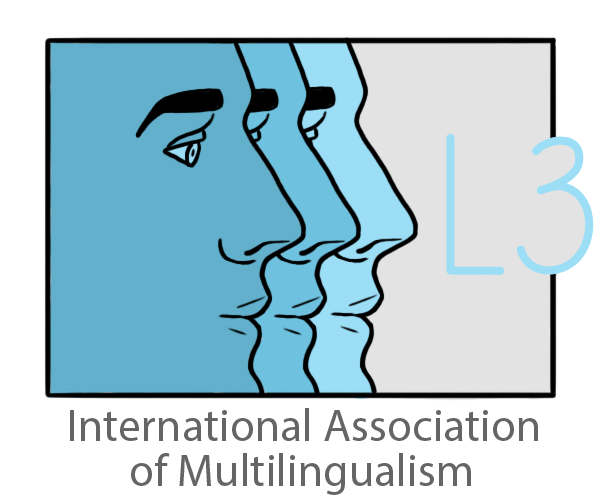Current trends in multilingualism research
Multilingualism does not imply perfect language knowledge, but means using two or three languages for varied life purposes. Defined in this way, multilingualism is ubiquitous in contemporary societies. Many people develop multilingually as a result of international mobility or migration. Others acquire several languages through schooling. However, knowledge about multilingualism and the social awareness of the phenomenon are still limited. Thus, the University of Warsaw Excellence Initiative (IDUB Action II 3.7 "Multilingualism" lead by Agnieszka Otwinowska-Kasztelanic) invites the academic community to a series of six lectures presenting research on linguistic, cognitive, affective and educational aspects of multilingualism. In the series, international experts discuss the results of empirical research on individual multilingualism and explain the mechanisms that underlie the functioning of multilingual adults and children. The lectures on current trends in multilingualism research are organised by the School for International Science UW (SIS UW), in cooperation with the International Association of Multilingualism. Multilingualism at the individual, societal and cultural level is also one of the leading themes within Flagship 2 of the 4EU+ Alliance that the UW belongs to.
All lectures are held online at 3 pm Warsaw time.
Lecture 1: https://youtu.be/d0z_N3EkA34
24th March (Wednesday) 3pm
Prof. Raphael Berthele (University of Fribourg, Institute of Multilingualism,)
Between monolingual bias and the celebration of diversity: Investigating individual differences in multilingual acquisition
Abstract: I start by giving a brief overview of multilingualism as a topic and as an object of scholarly investigation. The study of multilingualism is subject to interference from two opposing poles, a monolingual tradition and the ‘celebrationist’ multilingual ideology. Both interfere with research, as shown in the main part of the talk, in which I discuss empirical investigations into individual differences in the use of the multilingual repertoire.
Lecture 2: https://youtu.be/ujn-FLzm6iw
31st March (Wednesday) 3pm
Prof. Jean-Marc Dewaele (Birkbeck, University of London)
Communicating emotions in a foreign language: the ultimate linguistic challenge
Abstract: Early on in the foreign language learning process students might think that once they’ll master enough of the phonology, the morphology, the lexicon and the syntax of the target language, it will be plain sailing. It might come as a shock when they realise that to communicate how they feel, and to understand how their interlocutors feel, they need advanced pragmalinguistic and sociopragmatic skills.
Lecture 3: https://youtu.be/ERgbOR7IL48
15th April (Thursday) 3pm
Prof. Jasone Cenoz (University of the Basque Country)
Focus on multilingualism and translanguaging in education
Abstract: This presentation discusses the approach “Focus on multilingualism” that looks at students as multilingual speakers who can use resources from their multilingual repertoire in the social context. Within this framework, the concept of translanguaging will be discussed as related to spontaneous communicative practices among speakers or to planned instructional strategies used with a pedagogical purpose.
Lecture 4: https://youtu.be/ZjYClXbzl2g
21st April (Wednesday) 3pm
Prof. Julia Festman (University College for Teacher Education Tyrol)
Does it get any easier when we learn and process multiple languages?
Abstract: In this talk, I will discuss the ease with which multilinguals learn additional languages and provide some answers to two main questions: What helps multilinguals to acquire new languages? And what are the consequences of having to manage multiple languages? I suggest five specific effects related to multilingualism which may ease subsequent learning of multiple languages.
Lecture 5: https://youtu.be/Xi1x7lKRJO0
22nd April (Thursday) 3pm
Prof. Magdalena Wrembel (Faculty of English, Adam Mickiewicz University)
Exploring the acquisition of L3 phonology: challenges, new insights and future perspectives
Abstract: This talk aims to further our understanding of the acquisition of speech from a multilingual perspective by offering a state-of-the-art overview of findings as well as some theoretical and methodological considerations in research on L3 phonological acquisition. New insights from a longitudinal international project on cross-linguistic influence will be discussed and avenues for future research in the area will be proposed.
Lecture 6: https://youtu.be/htXehOXUL7U
29th April (Thursday) 3pm
Prof. Ewa Haman (Faculty of Psychology, University of Warsaw)
Multilingual children: developmental opportunities and challenges
Abstract: Recent research on multilingual development reveals some intriguing effects of being multilingual not only on language per se but also on cognition of multilingual children as early as from infancy. Still, factors leading to cognitive gains in multilinguals are not fully recognized. On the other hand, multilingual children may experience challenges in educational contexts (especially in monolingually oriented school systems) and may be at higher risk for inaccurate diagnosis of language disorder. A recapitulation of gains and losses that may be experienced by multilingual children and their families can help in better understanding of a very common but sometimes still undervalued phenomenon of multilingualism.

